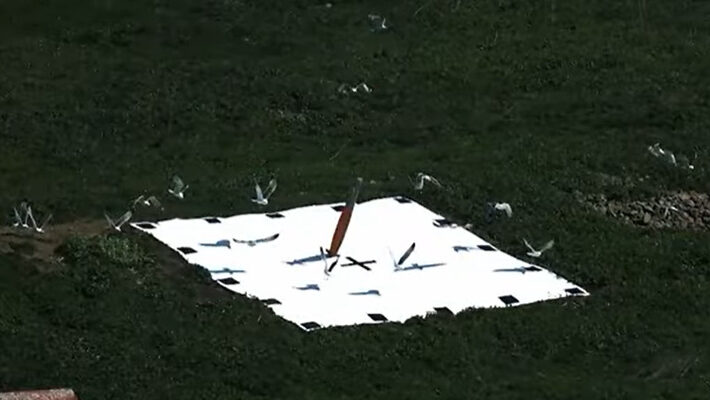On May 11, Turkey’s leading drone manufacturer Baykar announced that the Bayraktar Akıncı combat drone had successfully test-fired the Çakır cruise missile and GÖZDE guided bomb.
The Çakır is a light cruise missile that was developed by Roketsan for land, naval and aerial platforms. The missile uses the KTJ-1750 turbojet engine developed by the Turkish defense research company Kale Arge. It has a maximum range of 150 kilometers.
The missile, which was designed to engage both naval and land targets, is equipped with a GPS-aided inertial navigation system along with an infrared homing, or active radar seeker for terminal guidance. It weighs 270 kg and has a 70 kg warhead.
Akıncı carried two Çakır missiles during the test and fired one of them. Baykar CEO Haluk Bayraktar said in a tweet that the missile hit its target with “full accuracy.”
In another test, the drone hit a target using a 227 kg MK-82 series general-purpose bomb equipped with the new GÖZDE guidance kit, which was developed by Turkey’s TÜBİTAK-SAGE.
Bombs equipped with the guidance kit, which is built around a GPS-aided inertial navigation system, can hit static targets from up to 15 kilometers when deployed from combat drones like the Akıncı. The accuracy can be further improved with the addition of the CAMGÖZ semi-active laser seeker, which also allows the engagement of moving targets.
Commenting on the successful test, Baykar CEO said that the guided bomb will be the new “strike force” of the Akıncı and other Turkish warplanes.
The Akıncı, which has a wingspan of 20 meters, is one of Turkey’s largest drones. It has an operational range of 7,500 kilometers, an endurance of 25 hours and a service ceiling of over 12 kilometers. The drone was developed to carry out ISTAR [intelligence, surveillance, target acquisition and reconnaissance] missions as well as C3 [command, control and communication] tasks and combat operations.
Turkey has been working nonstop to develop the stand-off attack capabilities of its combat drones to address more advanced threats like air defenses, radar and electronic warfare systems.
MORE ON THIS TOPIC:





glad no seagulls were injured in the testing.